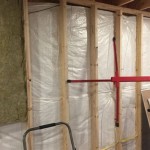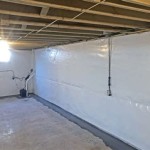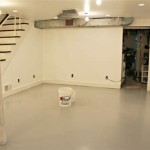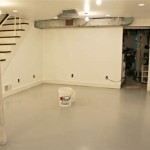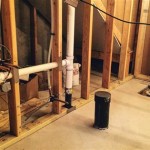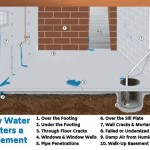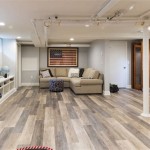Best Vapor Barrier For Concrete Basement Floor
When it comes to moisture control in a concrete basement floor, choosing the right vapor barrier is crucial. A vapor barrier prevents water vapor from migrating through the floor and into the living space above, which can lead to mold, mildew, and other moisture-related issues.
There are several types of vapor barriers available for concrete basement floors, each with its own advantages and disadvantages. The best vapor barrier for your basement will depend on factors such as the climate, the condition of the concrete, and your budget.
Here is a comparison of the different types of vapor barriers for concrete basement floors:
- Polyethylene (plastic) sheeting is a common and affordable vapor barrier option. It is available in different thicknesses, and the thicker the sheeting, the better the vapor barrier performance. Polyethylene sheeting is easy to install and can be used under both concrete slabs and floating floors.
- Asphalt-based vapor barriers are another popular option. They are made of asphalt and fiberglass, and they offer good vapor protection as well as some insulation value. Asphalt-based vapor barriers are more expensive than polyethylene sheeting, but they are also more durable.
- Epoxies and sealers are liquid-applied vapor barriers that are applied directly to the concrete surface. They form a seamless barrier that is highly effective at preventing moisture migration. Epoxies and sealers are more expensive than polyethylene sheeting and asphalt-based vapor barriers, but they offer the best vapor protection.
When choosing a vapor barrier for your concrete basement floor, it is important to consider the following factors:
- The climate. If you live in a humid climate, you will need a vapor barrier that is highly effective at preventing moisture migration. A polyethylene sheeting or asphalt-based vapor barrier would be a good option.
- The condition of the concrete. If the concrete is cracked or damaged, you will need a vapor barrier that is able to bridge the cracks and prevent moisture from migrating through them. An epoxy or sealer would be a good option.
- Your budget. Vapor barriers range in price from a few cents per square foot to several dollars per square foot. The type of vapor barrier you choose will depend on your budget.
Once you have considered these factors, you can choose the best vapor barrier for your concrete basement floor. By doing so, you can help to prevent moisture problems and create a healthy and comfortable living space.

Underslab Retrofits Sealing Slabs Waterproof Magazine

Underslab Retrofits Sealing Slabs Waterproof Magazine

Our Complete Crawl Space Vapor Barrier System

How To Install The Moisture Barrier Over Concrete Subfloor Furniture Woodworking Wonderhowto

Vapor Retarders For Basements And Crawlspaces Greenbuildingadvisor

Moisture Barrier Why Do You Need A

Perimeter Insulation Vapor Barrier Setup Variations Greenbuildingtalk Green Building Forums On Insulating Concrete Forms Icf Structural Insulated Panels Sip Radiant Heating Geothermal Heat Pumps Solar Power

Thermaldry Basement Flooring Systems Waterproof

Mp Global Moisture Block Non Toxic Recycled Self Sealing Vapor Barrier

What S The Best Basement Flooring System Greenbuildingadvisor
See Also

